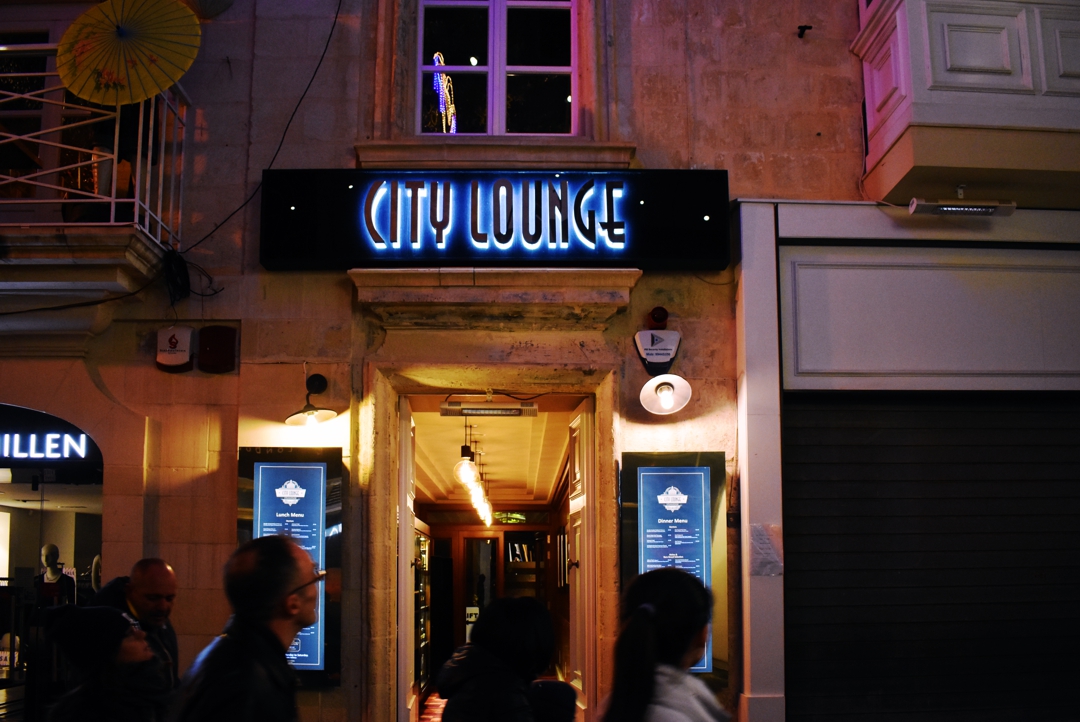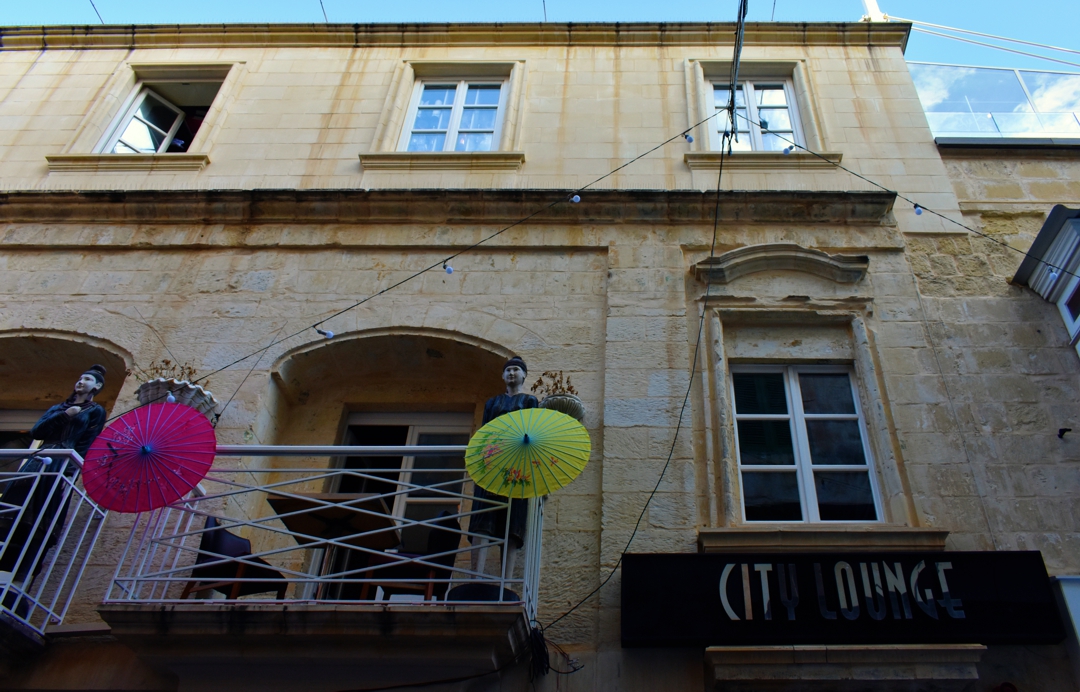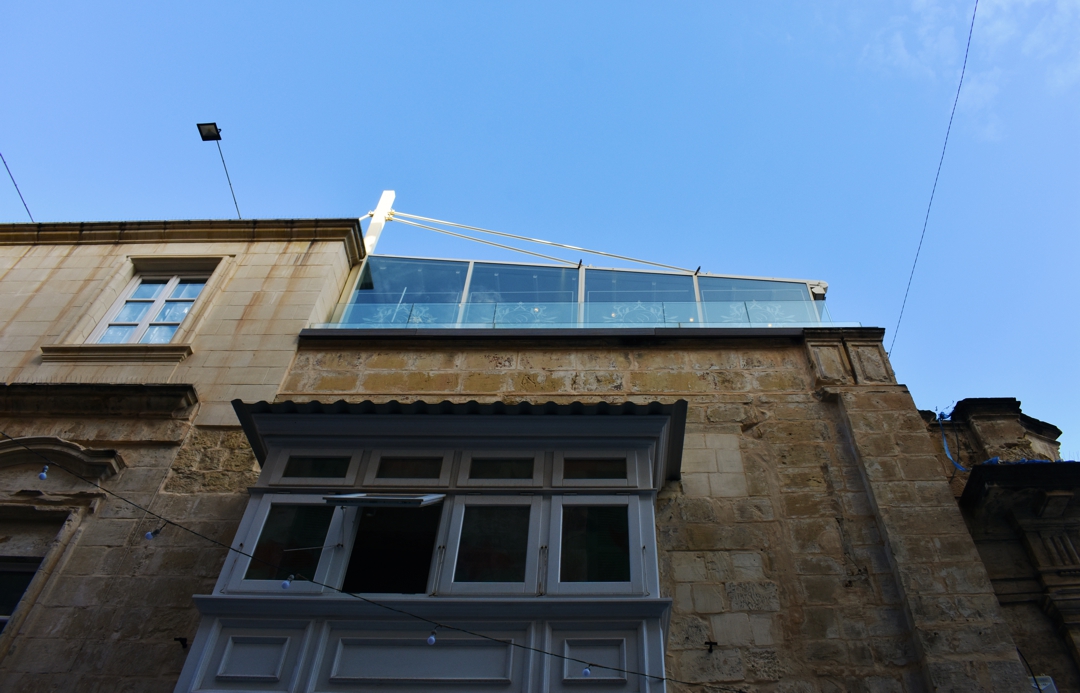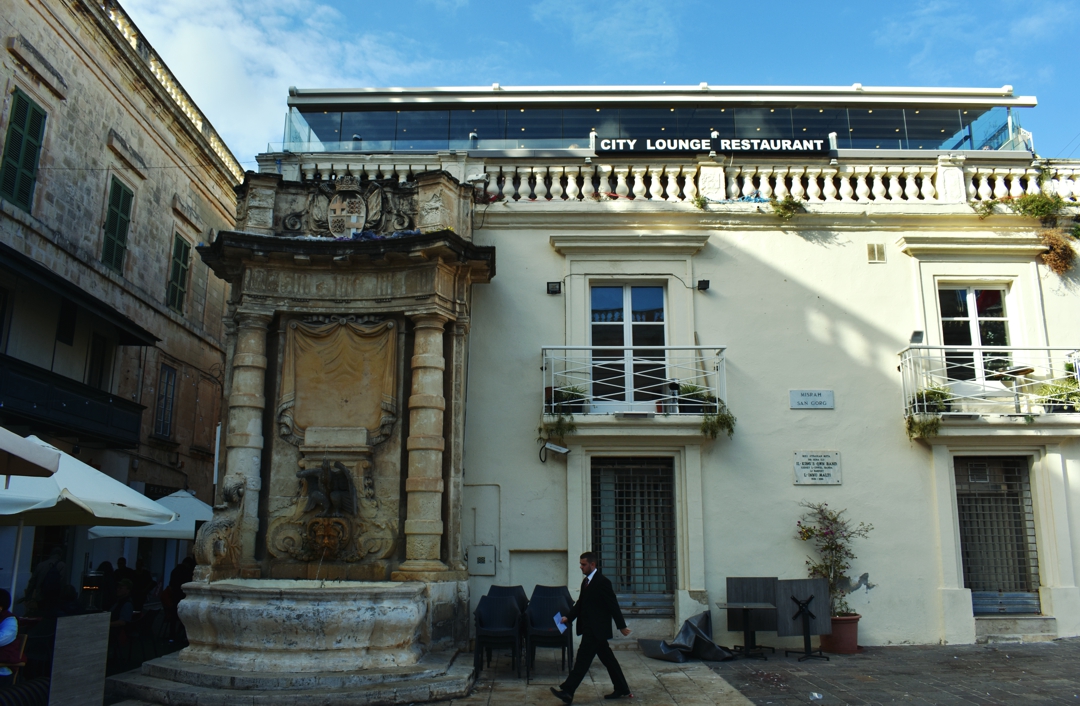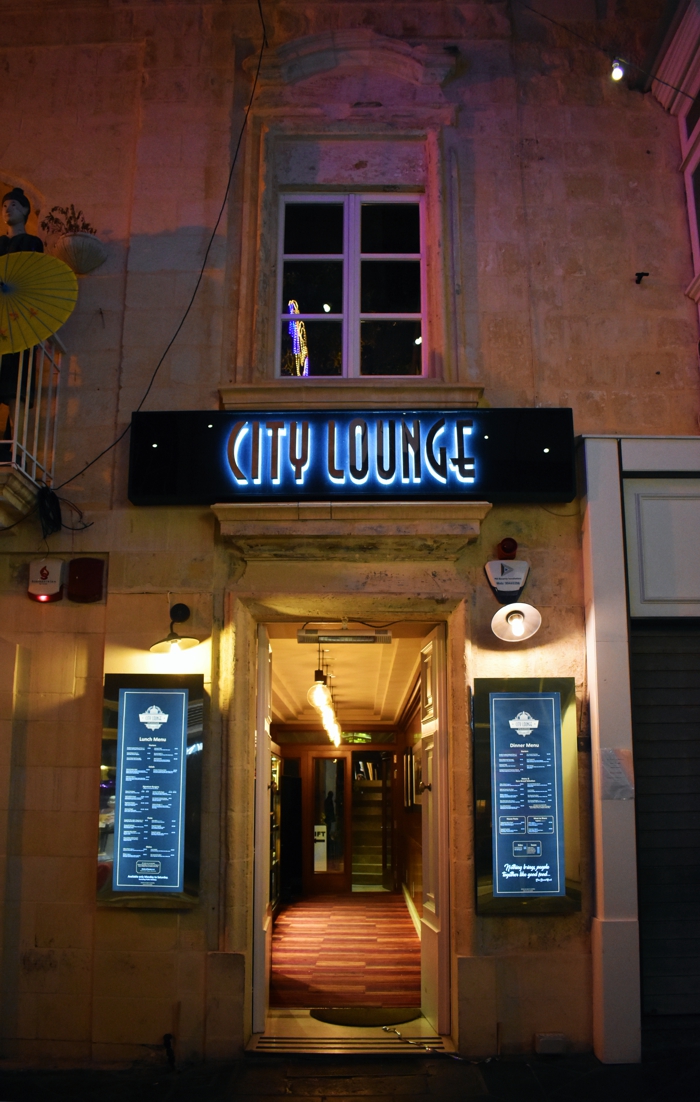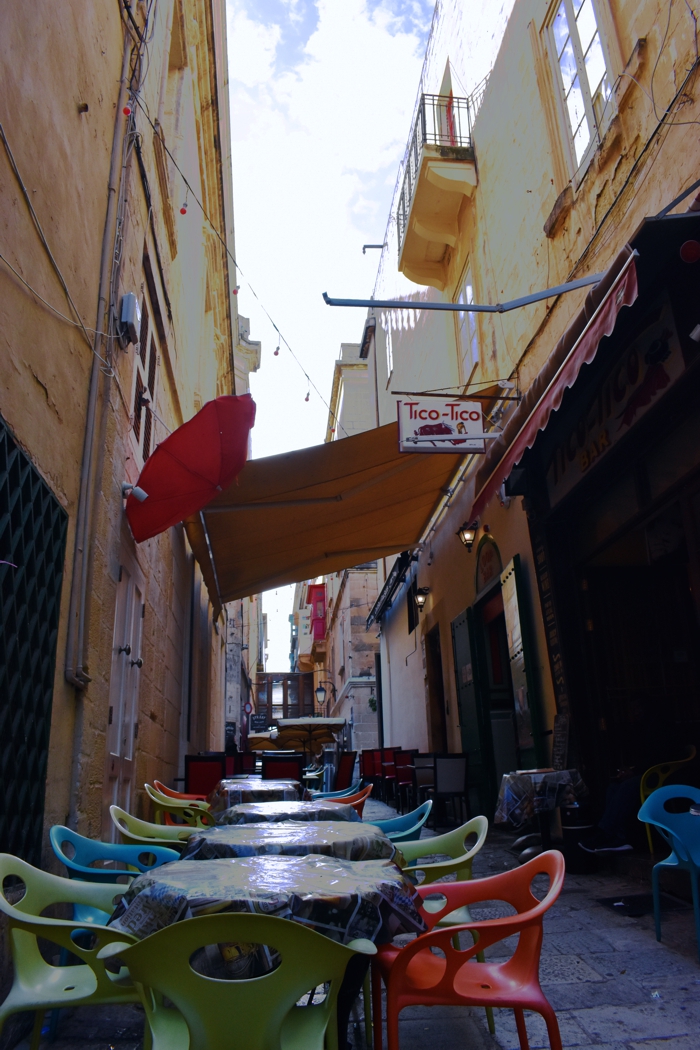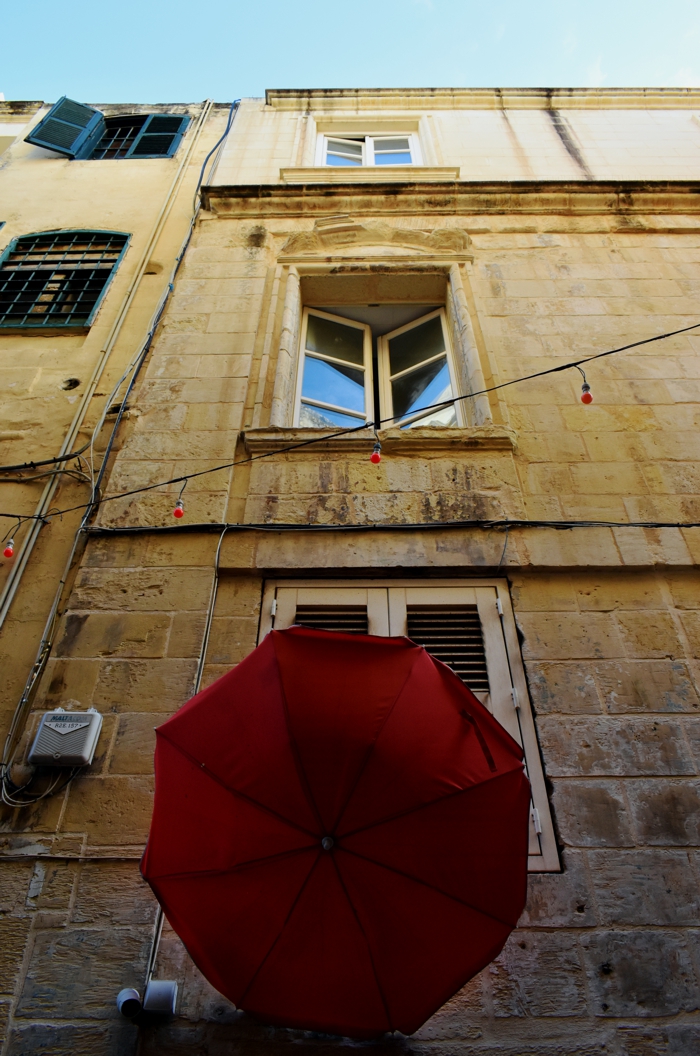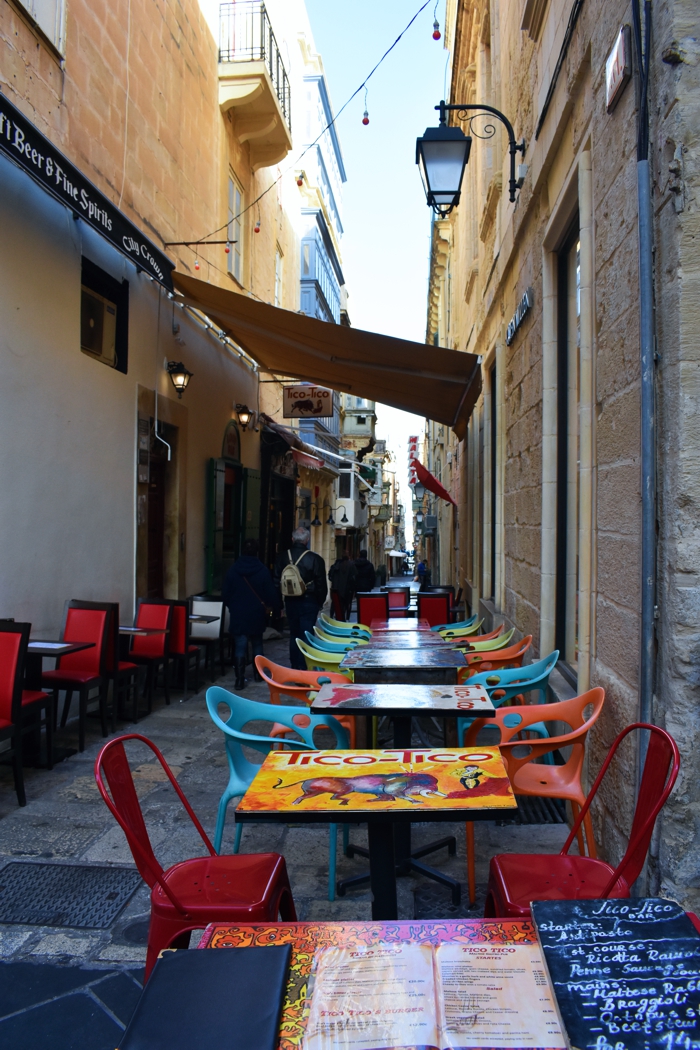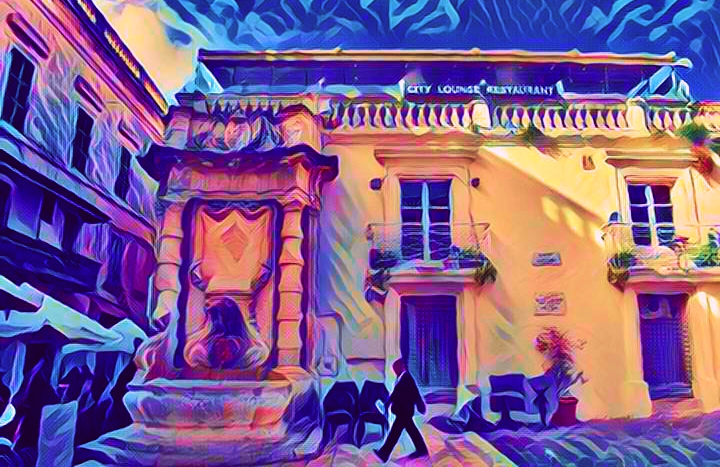
For well over a year, City Lounge has abused our common good in order to increase their own commercial activity. However, citizens have not become used to the realization that one of our fellows is abusing the common good for their own enrichment.
by Josephine Burden
Image by Raisa Galea (assisted by Fotor & GoArt)
The law locks up the man or woman
Who steals the goose from off the common
But leaves the greater villain loose
Who steals the common from the goose
(17th century rhyme against the enclosure of the commons in England)
[dropcap]I[/dropcap] began this series by drawing out some of the elements of the process of creating the common good, drawing on my engagement with four flagship projects of Valletta 2018. In passing, I have indicated some of the ways that some citizens are resisting the imposition of commercial imperatives on the Commons. Now I want to talk about my learning curve in relation to the formal process of resistance in Malta.
But first I want to go outside Valletta and back in time.
![]()
Soon after I returned to live in Malta some ten years ago, I attended a conference on best practice in equality held in a new hotel in what is now called Paceville. When I lived there almost seventy years ago, the area was St George’s Bay and Paceville was the British army officers’ quarters behind Dragonara Palace. We lived in St Rita St in the valley leading down to the bay. Our one-storey, rented house is now buried under hotels and bars.
I walk down toward the bay. I try to feel for the shape of the land under all that concrete.
Here is the fall of the valley running down to the beach. This concrete space must be the space where dad used to park his grey DKW motorcar. So to my right is the road where we used to race our go-carts. I feel again the hairpin down to the bay that now disappears in blocks of flats. To my left the steps go down St Rita Street. A small street sign hidden under the huge hot dog advertisement confirms it.
(Washing up in Malta, 2014, p72)
But is my sadness only about nostalgia and resistance to change?
[beautifulquote align=”left” cite=””]Who are we struggling against and what can we do individually as well as collectively to make a difference?[/beautifulquote]
For me, the coastline from Sliema to St George’s Bay represents the start and the continuing focus of the battle for control of public space and exploitation of the common good. Everyone I know complains about the onslaught of cranes, the gridlock of traffic, the overwhelming skyline of high-rise buildings. NGOs now organize our efforts to resist so that there are petitions to sign and public rallies to attend. Moviment Graffitti have been central to resistance to the ITS-db project that threatens to obliterate still more of St George’s Bay.
But who are we struggling against and what can we do individually as well as collectively to make a difference?
![]()
Here in Valletta, it has taken me many years to identify the networks of resistance.
Perhaps those networks had not been established when I first began to learn about the shared culture and spaces of this wonderful city. It seemed to me that it was taken for granted that government and commercial interests were in control of the common spaces and the common good of Valletta.
[beautifulquote align=”left” cite=””]The Common Good of Valletta was perceived primarily as a benefit for visitors.[/beautifulquote]
I was reassured that Valletta’s listing as a World Heritage site would ensure that the skyline could not be altered in an abusive way and that the cars of non-residents were controlled by a permit system. In time, I came to understand that a third group of people also had precedence over residents in the common good of Valletta—visitors from outside the city from overseas and from other parts of Malta. In other words, the Common Good of Valletta was perceived primarily as a benefit for visitors. The fact that the residential streets were quiet after 8.00pm was proclaimed as evidence of abandonment rather than a pragmatic reality for people who had to get up for work in the morning.
The gentrification of the city has gathered pace since then and continues. Resistance remains patchy and relies on individual efforts to keep up with the applications for planning permits that are affixed to every second door. Perhaps I will write more about that in coming articles. For now, I want to focus on City Lounge, a restaurant that overlooks and is part of the Common Good of St George Square.
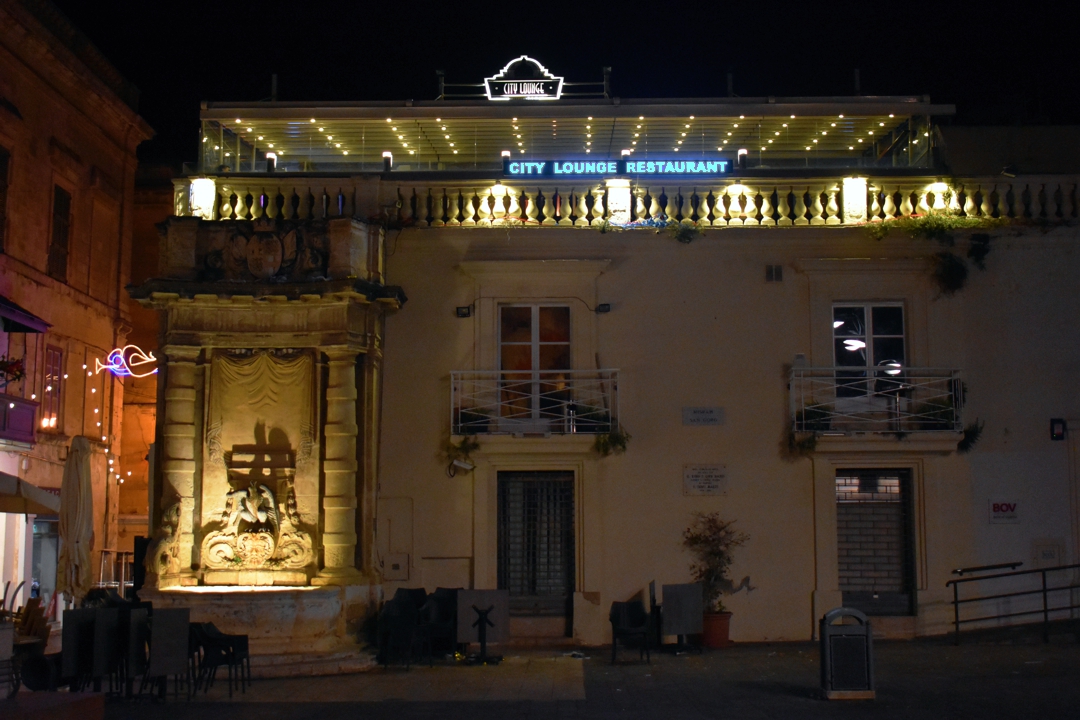
![]()
More than two years ago, City Lounge added an aluminium and glass rooftop awning as well as a slightly recessed advertising sign without a planning permit. After a few months in operation and complaints from residents, City Lounge applied to the Planning Authority to sanction the structure.
[beautifulquote align=”left” cite=””]At the Review Tribunal, I was totally alone amongst a table full of suited men and was intimidated when I was called up to sit at the table.[/beautifulquote]
Several of us put in objections and the request for sanctioning was turned down. Residents heaved a sigh of relief and went about their daily lives expecting the awning to be dismantled. It wasn’t and City Lounge appealed, quietly enough that most people failed to pick up on the new development.
Somehow, I managed to notice, registered my continuing interest and turned up at the Review Tribunal. I was totally alone amongst a table full of suited men and was intimidated when I was called up to sit at the table. They explained to me in English that the lawyer had arrived early, submitted new plans and gone. They gave me the date for a second hearing. I was disheartened and posted my despair to a newly established, closed FB group called Valletta Residents Revival.
I owe my continuation with my objection to Dr Reuben Grima, another Valletta resident, who picked up on my distress and offered his assistance even though he himself had missed the opportunity of re-listing as an objector. Together we have kept track of deadlines to submit rebuttals, taken photos of the further abuse of the skyline with the addition of another advertising sign, and attended two more meetings where the lawyer for City Lounge has insisted that proceedings should be in Maltese because he wished to make complex legal arguments.
I respect the significance of Maltese language in shaping our shared world but although I am attending classes, my Maltese is limited to very basic interactions on the street. So things are becoming difficult for me. At the most recent meeting, the lawyer didn’t even show up and sent word to say he was abroad. To cut a long and continuing story short, the final decision will be made at a meeting in January that I won’t be able to attend because is my turn to be abroad. However, I am grateful to Reuben Grima who will attend in my stead.
Even though the odds appear to be stacked against us, I wanted to ensure that the awful process we were going through might at least sow a few seeds that could inform our response to continuing threats to our common good, so I’ll finish this article with the text of a statement that I read out and tabled at the last meeting of the Review Tribunal.
Unlike everyone else around this table, neither myself, nor my colleague are paid to be here.
We attend as concerned citizens who have no pecuniary interest in the outcome of the meeting. Our interest lies with the common good that we perceive to be under threat. In this instance, the common good refers to our heritage, the cityscape that we all share, the history that we read in the buildings and skyline as we walk around in the public spaces of Valletta. In this instance, the common good is under threat from the application by City Lounge to sanction their unpermitted construction of an awning and two advertising signs on the roof of a building that forms part of the common good of St George Square. For well over a year, City Lounge has abused our common good in order to increase their own commercial activity. Now, they seek sanctioning of that abuse by claiming that citizens have grown accustomed to the signs and to the permanent awning. They also appear to suggest that they have the right to make money off the back of the common good.
We all have busy lives and I certainly have difficulty keeping up with the catalogue of abuse of common good that is happening throughout Malta. However, citizens have not become used to the realization that one of our fellows is abusing the common good for their own enrichment. That is why I am here today and I am hoping that is also the purpose of this board.
[beautifulquote align=”left” cite=””]We have to examine the underlying system that assumes that people in power—whether politically or economically—have the right to use public space according to their own needs rather than as a shared resource for us all.[/beautifulquote]
We have yet to see if the growing chorus of voices seeking to strengthen the planning and enforcement system in Malta will have any impact. Some blame greed, corruption and collusion between government and business to enrich the few at the expense of the common good. Taking that position makes it difficult to identify possibilities for change. Strengthening enforcement may help in the short term but we have to examine the underlying system that assumes that people in power—whether politically or economically—have the right to use public space according to their own needs rather than as a shared resource for us all.
In my next article I return to the fourth of Valletta 2018’s flagship projects, The Valletta Design Cluster.
Read more:
Valletta and Our Common Good: Strada Stretta
Valletta and Our Common Good: is-Suq tal-Belt
Valletta and Our Common Good: MUZA
![]()
